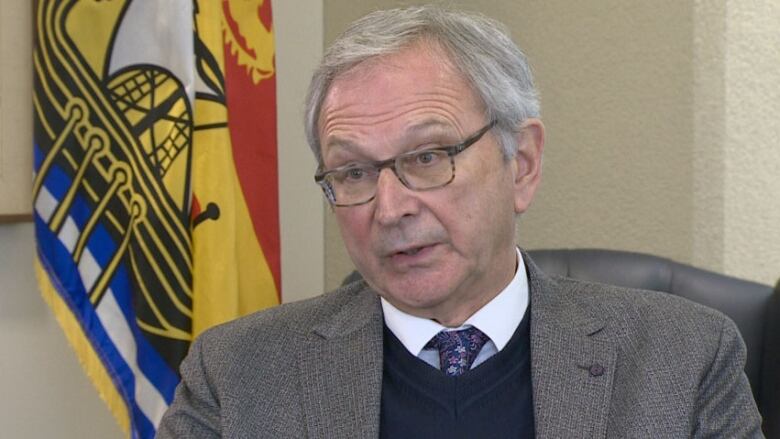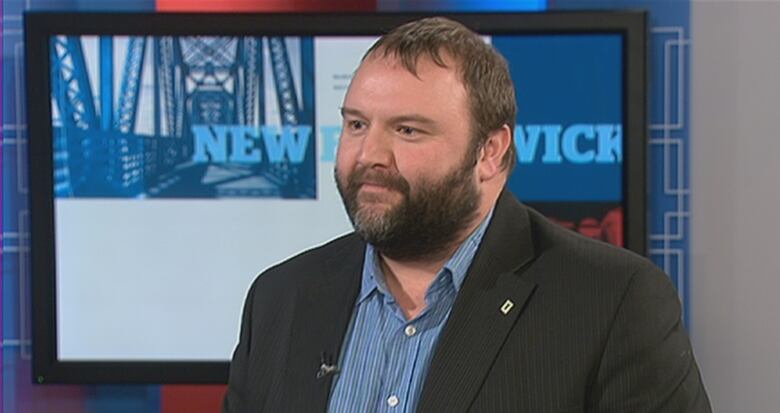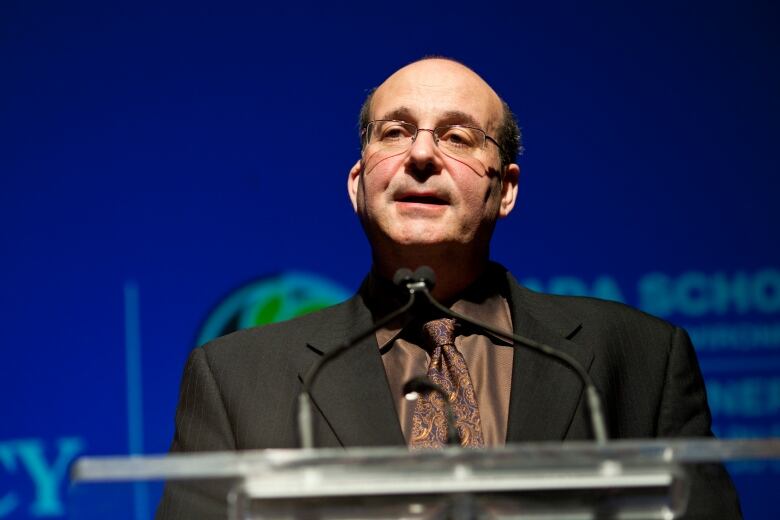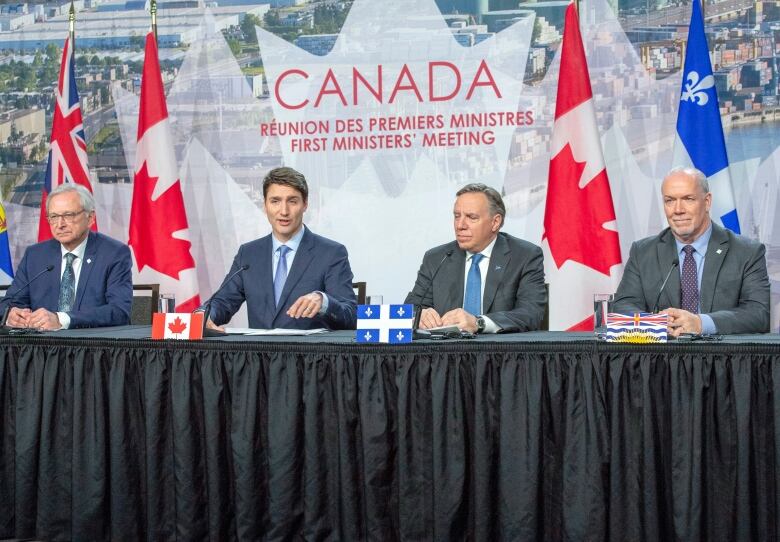Ottawa should cut equalization to force provinces to develop resources, Higgs says
New Brunswick premier says financial pinch would serve as 'reality discipline'

New Brunswick Premier Blaine Higgsthinks the federal government should cut equalization payments to force provinces to develop their natural resources.
Higgs said in an interview with CBC New Brunswick's Harry Forestellthat he proposed the idea during the first ministers'meeting in Montreal earlier this month.
"No one else really jumped on that, especiallyQuebec didn't jump on that because they got an increase of $1.4 billion [in equalization payments]," he said.
Higgs made the comments in the context of Quebec PremierFranois Legault'scontinued opposition to the Energy East pipeline, which would have carried western crude oil to an export terminal in Saint John.
"My point was if people felt the painif I felt the pain, if Quebec felt the pain and they didn't get 70 per cent of the current transfer payments I mean, they don't feel anything, so they can just say, 'No, we're not allowing anything through our province, but yet I'll take the money.'I just don't think that's fair."
Equalization is a federal program that is intended to minimize fiscal disparities between provinces.
The program is enshrined in the constitution and the goal is that provincial governments can provide comparable levels of public services at comparable levels of taxation.

Jamie Gillies, a political scientist at St. Thomas University, said Higgs's proposal is not realistic.
"The suggestion to cut equalization might play well in western Canada and Ontario but that could be seen as a shortsighted approach in New Brunswick, where we depend a lot on transfer payments," Gilliessaid in an email.
"I would think that the job of the premier of New Brunswick at first ministers' conferences is to advocate and fight for the province, not suggest austerity policies that could seriously hamstring his government and harm New Brunswickers."
Pipeline project pulled
TransCanadaabandoned the proposed $16-billion pipelineproject last year following protests and changes to the national environmental assessment process.
Higgs had hoped to resurrect the pipeline debate at the recent meeting with the premiers and prime minister, but Legaultmaintained there's "no social acceptability for oil in Quebec."
Higgs said there was general agreement among the premiers for a "utility corridor," which could be used for pipelinesfor oil and gas or transmitting hydro power. But Higgssaid Quebec opposed the idea.
"It's like we're stranded here on the east coast and cut off from the rest of Canada," said Higgs.

Higgs is not the only one frustrated about the inability to build pipelines and energy issues in Canada.
Economist Jack Mintz,a president's fellow at the University of Calgary's School of Public Policy, said this week that Alberta should consider leaving Canada, which he dubbed "Albexit."
In an interview with CBC's As it Happens, Mintzsaid Albexit would be a last resort but it could help the province as it tries to boost its energy sector.
"Alberta is being landlocked right now in Canada in the current situation. Sowhat would independencedo?Well, it won't necessarily help get pipelines to tidewater in Canada, but certainly, you know, theUnited States may be quite willing to make deals with Canada for oil," he said.
Developing N.B.'s energy sector
Meanwhile, New Brunswick is hurting itself by not developing its "significant" shale gas reserves, which could be "game changing" for the province's finances, Higgssaid.
"We just don't seem to want to move as a province. We're happy to accept handouts, but we don't seem to be as readily willing to make the changes necessary to allow us to contribute to our own well-being," he said.

Without 30 per cent of the budget coming through federal transfer payments, Higgs suggested attitudes might change about resource development.
"It's like a reality discipline," he said.
"All that I'm asking is, how can we hold our hand out on one hand and then say no on the other?"
The former Liberal government put a moratorium on shale gas development in New Brunswick.
The Higgs government has been discussing the possibility of lifting the moratorium in certain areas of the province. Higgs's PC government is in a minority situation and there is opposition from other parties to the idea of lifting the moratorium.
St. Thomas University's Gillies said equalization is a constitutional obligation and "should not be equated with resource development."
With files from Harry Forestell












_(720p).jpg)


 OFFICIAL HD MUSIC VIDEO.jpg)
.jpg)



























































































